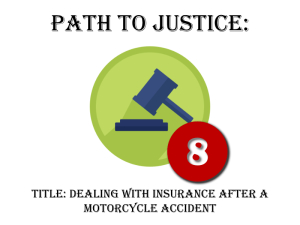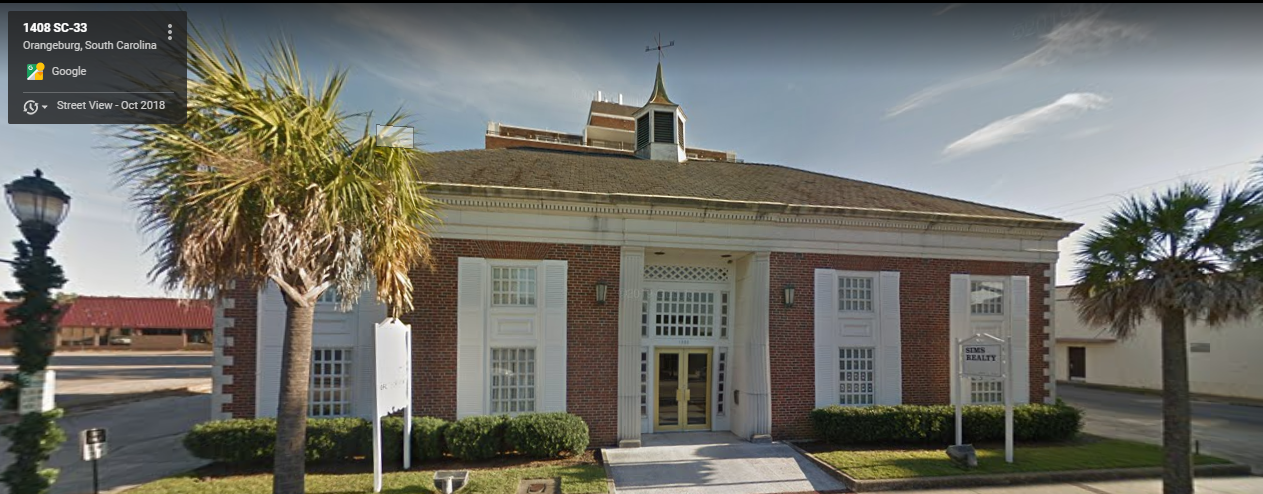Introduction
Navigating the insurance landscape after a motorcycle accident can be a daunting task. Understanding your policy, knowing your rights, and being prepared to deal with insurance
companies are crucial aspects of ensuring fair compensation for your damages and injuries. This article outlines the steps and considerations in dealing with insurance after a
motorcycle accident.
- Reporting the Accident to Your Insurance Company
- Timely Reporting: Notify your insurance company about the accident as soon as possible. Delaying this step may complicate the claims process later on.
- Providing Information: Be prepared to provide all relevant information about the accident, including the date, time, location, and parties involved.
- Understanding Your Insurance Policy
- Coverage Details: Familiarize yourself with the specifics of your insurance policy, including your coverage limits and any deductibles.
- Uninsured/Underinsured Motorist Coverage: Understand the provisions of your policy regarding accidents involving uninsured or underinsured motorists.
- Documenting the Accident and Damages
- Photographic Evidence: Take clear photographs of the accident scene, your motorcycle, and any injuries sustained.
- Medical Documentation: Keep detailed records of your medical evaluations, treatments, and expenses related to the accident.
- Handling Insurance Adjusters
- Initial Contact: You will likely be contacted by an insurance adjuster to discuss the accident and your claim.
- Be Cautious in Communication: Be clear and factual in your discussions with the adjuster. Avoid making statements that could be interpreted as admitting fault or
downplaying your injuries.
- Do Not Accept Initial Settlement Offers: Be wary of accepting the first settlement offer, as it may not adequately cover your damages and medical expenses.
- Claim Denials and Disputes
- Understanding the Reason for Denial: If your claim is denied, ensure you understand the reason and consider seeking legal advice.
- Dispute Resolution: Be prepared to dispute the denial or negotiate the settlement amount. Having a lawyer can be invaluable in this process.
- Seeking Legal Assistance
- Consulting an Attorney: Consider consulting an attorney experienced in motorcycle accident claims to navigate the insurance process and advocate on your behalf.
- Legal Representation: An attorney can handle communications with the insurance company, negotiate settlements, and represent you in any legal proceedings related to
the accident.
- Additional Considerations
- Personal Injury Protection (PIP) and MedPay: Understand the role of Personal Injury Protection or MedPay in covering your medical expenses, irrespective of who is at fault.
- Documenting Communication: Keep records of all communications with the insurance company, including the names of representatives, dates, and details of the conversations.
Conclusion
Dealing with insurance after a motorcycle accident involves multiple steps and considerations. Being informed, organized, and proactive in handling insurance matters can contribute to a
smoother claims process and help ensure that you receive the compensation you are entitled to for your damages and injuries.
Note: This article provides a general overview of dealing with insurance after a motorcycle accident. Laws and insurance policies can vary, and it's always advisable to consult with a legal
professional or insurance expert for personalized guidance.
Introduction
Insurance often plays a significant role in determining the compensation an injured party may receive in personal injury cases. Understanding how insurance works in personal injury cases
and the potential challenges claimants may face can help you navigate the process more effectively. In this article, we will discuss the role of insurance in personal injury cases and
provide essential information every claimant should know.
Types of Insurance Involved in Personal Injury Cases
Various types of insurance policies may come into play in personal injury cases, depending on the circumstances of the incident. Some standard insurance policies include:
- Auto insurance: In car accident cases, the at-fault driver’s auto insurance policy is typically responsible for compensating the injured party for their losses.
- Homeowners or renters insurance: In slip and fall accidents or dog bite cases occurring on private property, the property owner’s homeowners or renters insurance
policy may cover the damages.
- Business liability insurance: In cases involving accidents on commercial properties or injuries caused by professional negligence, such as medical malpractice, the responsible
party’s business liability insurance may come into play.
Filing a Claim with the Insurance Company
After an incident resulting in a personal injury, the injured party (or their attorney) usually files a claim with the responsible party’s insurance company. This involves submitting a demand
letter outlining the accident’s details, the injuries sustained, and the compensation sought. Insurance companies will then investigate the claim and may request additional documentation
or evidence to support the claim. They may also conduct their interviews with witnesses, review medical records, or consult with experts to assess the validity and value of the claim.
Negotiating with Insurance Companies
Once the insurance company has reviewed the claim, they may accept it, deny it, or offer a settlement. In many cases, the initial settlement offer may be lower than what the claimant
believes their claim is worth. At this stage, negotiations between the claimant (or their attorney) and the insurance company may take place to reach a fair settlement.
It is essential to remember that insurance companies are businesses, and their primary goal is often to minimize payouts. Having an experienced personal injury attorney represent you
during negotiations can help ensure that your interests are protected and increase the likelihood of securing a fair settlement.
Potential Challenges with Insurance Companies
Claimants may face various challenges when dealing with insurance companies, including:
- Policy limits: Insurance policies have limits on the amount of coverage they provide. Suppose the damages in a personal injury case exceed the policy limits. In that case, the
injured party may not be able to recover the full amount of their losses from the insurance company. “If” the injured party has uninsured/underinsured coverage on their policy, they
can make a claim with their insurance company to cover what’s not covered by the policy limits of the at-fault driver’s policy. Understand your insurance company may challenge that
claim in the same way as the at-fault driver/insurance.
- Denial of claims: Insurance companies may deny claims for various reasons, such as a lack of evidence, policy exclusions, or an assertion that the injured party was partially or
entirely at fault for the accident.
- Delay tactics: Insurance companies may use various tactics to delay the claim process, such as requesting additional documentation or prolonging negotiations. In some cases,
the delay could put the claim beyond the statute of limitations for filing a suit.
Conclusion
Understanding the role of insurance in personal injury cases is crucial for claimants seeking compensation for their injuries. It’s essential to be aware of potential challenges when dealing
with insurance companies and to have an experienced personal injury attorney to guide you through the process and advocate for your best interests.








